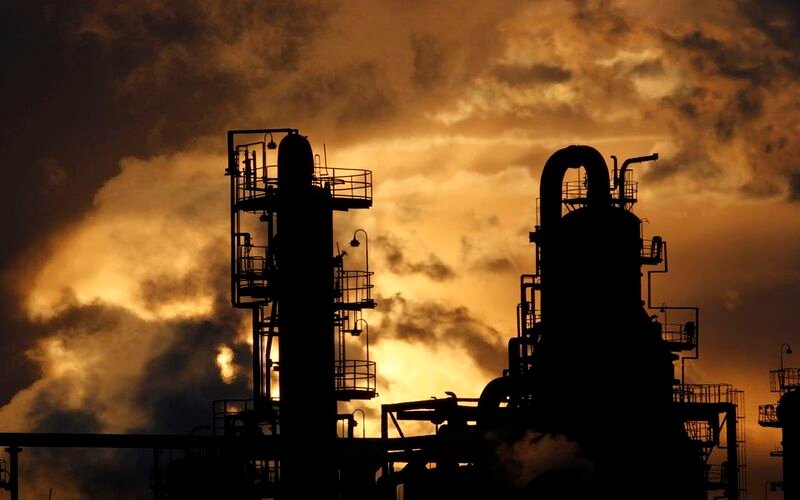On Friday, oil prices were mixed during a volatile trading session due to concerns about the macroeconomy and profit-taking. However, oil prices were expected to rise by approximately 30% during the quarter due to production cuts implemented by OPEC and its allies.
At 12:22 p.m. Eastern Daylight Time (1722 GMT), a barrel of Brent futures for November was $95.43, up 5 cents from the previous settlement. The contract was set to expire later in the day. The more liquid Brent December contract ended the day at $92.99 per barrel, 11 cents lower than its previous settlement.
The price of a barrel of West Texas Intermediate crude in the United States fell by 4 cents, or 1%, to $81.57.
Earlier in the session, WTI futures were trading $1 higher per barrel; however, they have since reversed course and are now trading $1 lower than they were on Thursday. WTI is expected to advance 1%, while Brent will advance 2.5% over the week.
Because oil futures are inching closer to the $100 per barrel threshold, investors may be taking stock of the current rally given the ongoing concerns regarding the macroeconomy. According to John Kilduff, a partner at Again Capital LLC in New York, “WTI has been the belle of the ball, but today it’s losing its luster.” He cited profit-taking and economic concerns as the reasons for this statement.
The price of Brent crude futures is expected to increase by 27% during the third quarter, while the price of U.S. crude futures should settle at a higher level by 30%. Investors may consider the possibility of a partial shutdown of the United States government on Sunday. Lael Brainard, a top economic adviser to the White House, stated on Friday that a government shutdown would pose an “unnecessary risk” to the robust economy of the United States.
Concerns about the Chinese economy increased further on Friday due to a report that the chairman of the indebted property developer Evergrande Group (3333. HK) had been placed under police watch. This news caused the shares of Evergrande Group to be temporarily halted until further notice.
U.S. consumer spending grew 0.4% in August, but personal consumption expenditures (PCE) price index data revealed that inflation, excluding volatile food and energy costs, slowed to 0.1% last month from 0.2% in July.
The OPEC+ ministerial panel meeting will take place on Oct. 4.
“Next week’s OPEC meeting will be a key update for the market, with increasing probability the voluntary supply cuts by Aramco are reduced,” National Australia Bank analysts wrote in a client note, referring to Saudi Arabia’s national oil company.
Brent is projected to average $89.85 a barrel in the fourth quarter and $86.45 in 2024, according to a survey of 42 analysts gathered by Reuters on Friday.
The production restrictions planned by Saudi Arabia and Russia are anticipated to dominate oil prices for the balance of this year.
However, a run above $100 per barrel might be short-lived because of “the artificial nature of supply shortages in the system and the fragile macro environment,” said Suvro Sarkar, energy sector team head at DBS Bank.
































Comment Template